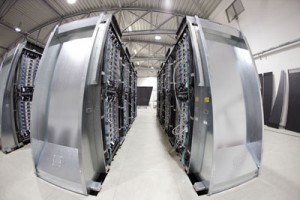Why Entrepreneurs Are Winning
 Is it ever a bad time to be an entrepreneur? When times are great they have lots of potential investors to fund outlandish ideas that at times may seem highly speculative. When times are bad, entrepreneurs are some of the best bootstrappers around and create high value propositions for ailing businesses or thrifty consumers. Finding and creating value is what the entrepreneur specializes in; it’s an ancient form of arbitrage that can thrive in just about any type of market.
Is it ever a bad time to be an entrepreneur? When times are great they have lots of potential investors to fund outlandish ideas that at times may seem highly speculative. When times are bad, entrepreneurs are some of the best bootstrappers around and create high value propositions for ailing businesses or thrifty consumers. Finding and creating value is what the entrepreneur specializes in; it’s an ancient form of arbitrage that can thrive in just about any type of market.
The last five years have left the world economy in notoriously poor condition. The credit crunch has hit consumers and businesses hard, and stifled cash flow, loans, and all kinds of funding from angel to venture capital. Millions of people have been laid off of cushy cubicle jobs, pensions have been lost, and 401k’s have been decimated by highly volatile movements in the financial markets. At the same time, the cost of technology has never been lower, the value of that technology has never been higher, and highly valuable talent is collecting unemployment checks. In short, it’s never been a better time to be an entrepreneur, here’s why:
Technology
While the computer on your desk hasn’t changed that fundamentally, there are resources available to the average person right now that simply just didn’t exist even five years ago. Often times entrepreneurs are the victim of their own success. They too quickly get too much business and have too few resources, or they grow too quickly and aren’t able to provide the type of customer service they started with. These problems are only exasperated by poor infrastructure. Customers that have to deal with busy signals are not happy customers. Start up Twilio set out to solve this problem.
 Creating a virtual call center years ago would have taken lots of obscure knowledge and hardware, you can now create your own Voice Over IP service using their API, using languages that your developers already know, using the Twilio API. If you want a virtual call center, a PBX, a custom SMS solution, or even just a really fancy answering machine, Twilio can handle all of this for you, in any volume, from day 1. Part of Twilio’s appeal and scalability comes from the fact that it lives in “The Cloud”.
Creating a virtual call center years ago would have taken lots of obscure knowledge and hardware, you can now create your own Voice Over IP service using their API, using languages that your developers already know, using the Twilio API. If you want a virtual call center, a PBX, a custom SMS solution, or even just a really fancy answering machine, Twilio can handle all of this for you, in any volume, from day 1. Part of Twilio’s appeal and scalability comes from the fact that it lives in “The Cloud”.
In 2004 Gmail went live (Albeit in a “Beta” that would stick around for years) with what might be considered the first real cloud application that was public facing. They offered 1Gb of Email storage to anyone who wanted it. They used their proprietary Google Filesystem to leverage commodity hardware and keep costs down. The downward spiraling price of storage allowed Google to keep increasing their space while at the same time, increasing an ever more loyal user base.
Amazon, purveyor of everything from bibles to sex toys, became the largest online retailer by creating networks of computers that could handle the massive load of hundreds of thousands of impressions per hour. Their very popularity threatened to bring down their business unless they could build an infrastructure able to handle it. Enter the Amazon Cloud: Geographically diverse data centers with high scalable solutions to allow Amazon to grow, and shrink as needed. This reduced overhead when they didn’t need all that horsepower, and it allowed them to add more power at a moments notice. In 2006 they opened this service up to a full public beta.
Since then, Amazon has served petabytes and petabytes of information with what the industry calls “three nines of reliability”, referring to how far past the decimal point is populated with 9’s as a measured percentage of downtime. You can rent a full fledged web server for $0.08 per hour. So if your business is going to go from just talking to local people, to being mentioned on the Oprah show and receiving hundreds of thousands of impressions per hour, you can pay for only what you need. When the Oprah flood as subsided, clients can return to their normal monthly fee, and not miss out on a goldmine of promotion.
It may not be the audience coming to a business that creates success, but rather bringing a business to an audience. Amanda Hocking is a twenty six year old writer with a flair for the paranormal. Her 19 books are self published on the Amazon Kindle network, and have been a runaway success for her. She’s sold over 900,000 (Yes, as in 90% of 1 million) copies of her books. She doesn’t have a publisher, and most of her books exist solely in digital format. It’s unfortunate to say that without the Kindle, she’d be like the hundreds of thousands of other starving artists knocking on the doors of big publishers hoping to get someone to glance at their hours of hard work. Her rapidly consumable product, $.99 price point, and excellent marketing have landed her on the USA Today best sellers list.
Real Estate
 Many companies that are growing rapidly have a hard time finding a place to exist. Luckily for companies that are growing quickly, and are looking for a new place to hang their sign, there has never been a better time to find and lease real estate.
Many companies that are growing rapidly have a hard time finding a place to exist. Luckily for companies that are growing quickly, and are looking for a new place to hang their sign, there has never been a better time to find and lease real estate.
However, if you’re bootstrapping a company, and don’t yet have the budget for your own digs, there is a new trend happening that allows great minds and companies to coexist. Predictably, it’s called Coworking, and with the recent down turn in the economy many would-be home office warriors are turning toward local coworking space to provide additional resources, collaboration, and great networking opportunities. Of course, this has been a common practice in places like Silicon Valley in California and Silicon Alley in New York due to the sheer expense and difficulty of finding places to work, but the trend has caught on and is quickly filling the gaps between the two locales.
 One such Coworking space is called Gangplank. It exists in Chandler, Arizona and their website say they’re “a group of connected individuals and small businesses creating an economy of innovation and creativity in the Valley.” Gangplank looks pretty innocuous but amongst the cavernous open air surroundings of this Suburban Phoenix dwelling lurks an exciting credo, “Be Dangerous”. As a non-profit entity, Gangplank is entirely supported by the core companies that exist within it’s walls. These companies pay the rent, light bill, and provide internet. The rest of the space is couches, a small stage, office chairs and folding tables punctuated by power strips. The energy behind Gangplank isn’t simply local folks, it’s prestigious anchors include the likes of Integrum, Forty Agency, and Authority Labs. It’s not just tech that calls Gangplank home though; on any given day you’ll find Realtors, Designers, and even craft beer home brewers there. Gangplank creates the community just as much as they energize it.
One such Coworking space is called Gangplank. It exists in Chandler, Arizona and their website say they’re “a group of connected individuals and small businesses creating an economy of innovation and creativity in the Valley.” Gangplank looks pretty innocuous but amongst the cavernous open air surroundings of this Suburban Phoenix dwelling lurks an exciting credo, “Be Dangerous”. As a non-profit entity, Gangplank is entirely supported by the core companies that exist within it’s walls. These companies pay the rent, light bill, and provide internet. The rest of the space is couches, a small stage, office chairs and folding tables punctuated by power strips. The energy behind Gangplank isn’t simply local folks, it’s prestigious anchors include the likes of Integrum, Forty Agency, and Authority Labs. It’s not just tech that calls Gangplank home though; on any given day you’ll find Realtors, Designers, and even craft beer home brewers there. Gangplank creates the community just as much as they energize it.
Barriers To Entry
So with a place to work, and lots of resources available, many companies face the age old question of, “What now?!” Their still isn’t much help in regard in terms of what to make, but making it has never been easier. Websites used to take hours to make, and for the most part if you were sharp enough to make a website, you weren’t a marketing person, or if you were great at marketing, you had no idea how to code a website.
In 2003, Matt Mullenweg, (pictured left) wrote a “bit of code to enhance the typography of everyday writing”. It has since exploded into WordPress, one of the most powerful, most versatile publishing tools available. It has users numbering into the millions, and a roster of impressive clients including The New York Times, Old Spice, and Pepsi. Now if you have something to say, sell, or shout, you can put it on a gorgeous, highly functional WordPress blog and reach millions of people — no coding needed. The WYSIWYG interface allows even novice computer users to create and publish great content quickly and efficiently. It’s no coincidence some of the most popular meme’s have been using WordPress to publish themselves — when you have a message it’s about dispersing it, not creating the method to disperse it.
Besides the ease of content creation and publishing, selling has become easier on the internet as well. People are far more likely to shop online because of zero liability from companies like Visa, Mastercard and American Express. As more people turn to the web to research products, it’s inevitable more and more people will be motivated to buy there by the lure of low prices and convenient home delivery. “We felt it would have been stupid not to start a business now.” says Hernan Charry the Alpha Dog cofounder of Paw Posse Dog Supplies, a boutique shop focusing only on Big Dogs. “Using the internet, we can reach a broader market segment than we could locally.” Because of crumbling barriers to entry, anyone can give their idea wings, huck it off a cliff, and see if it flies.
Conclusion
 The collusion of technology, economy, and necessity are excellent motivators to help people think outside of the box and create something they may not have been able to before. At the end of the day, great entrepreneurs create things, and it’s never been as easy or as cheap to create solutions, products or value. The startup culture that seems so passe` to many inside of it is starting to take a mainstream hold. Influential start up culture icons like Gary Vaynerchuk (right) have been telling people now is the time to start your business, and it’s never been more true than right this moment. It may be time to dust off the novel, keep tinkering with that invention, or finally put an end to the problem that’s been driving you crazy — and share your ideas on the world stage.
The collusion of technology, economy, and necessity are excellent motivators to help people think outside of the box and create something they may not have been able to before. At the end of the day, great entrepreneurs create things, and it’s never been as easy or as cheap to create solutions, products or value. The startup culture that seems so passe` to many inside of it is starting to take a mainstream hold. Influential start up culture icons like Gary Vaynerchuk (right) have been telling people now is the time to start your business, and it’s never been more true than right this moment. It may be time to dust off the novel, keep tinkering with that invention, or finally put an end to the problem that’s been driving you crazy — and share your ideas on the world stage.

